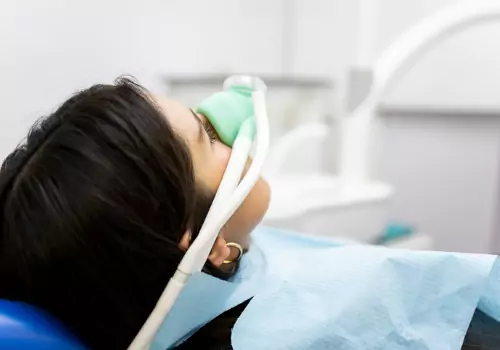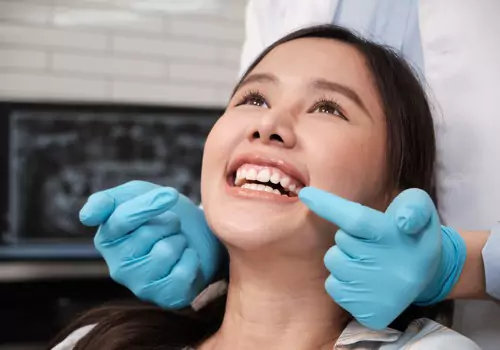
Safest Dental Sedation
What to Know About Dental Sedation and Just How Safe It Is
If you are struggling with a fear of going to the dentist, or dental anxiety, you aren’t alone. According to Cleveland Clinic, 36% of Americans have this same fear, which means it’s incredibly common. Yet that doesn’t mean it should prevent you from getting the dental care you need. That’s where sedation dentistry can help. Sedation dentistry is a practice where a dentist administers sedatives to ease anxiety and pain, without causing side effects. There are the common types of sedation dentists offer. If you’re curious about the safest dental sedation, here’s what you should know about this practice.
Oral Sedation
When dentists use oral sedation, they administer sedative drugs that help relieve anxiety. These medications don’t put patients to sleep. However, they do help provide a sense of calm that allows a dentist to continue with a procedure with ease. Some dentists may use Valium, Ativan, Ambien, or Lunesta. These pills, which are part sedative and part anxiolytic to reduce anxiety and decrease nerve pain, dissolve under the tongue, making them easy to ingest.
Oral drugs are some of the safest dental sedation options. The side effects, while short-term, can last for a few hours after your procedure. They can include making you tired or sleepy, slowing your reaction time. They can also make you dizzy or cause temporary memory loss until they wear off. For this reason, you should always talk to your dentist to discuss your health and to make sure oral sedation is right for you. You’ll also need to ensure you have someone to drive you home after a procedure. When these medications wear off, you’ll be back to normal in no time.
Inhalation Conscious Sedation
Many dentists use inhalation conscious sedation, where patients inhale nitrous oxide through a mask, which creates a calming effect. Nitrous oxide, also known as laughing gas, is colorless, and it may have a sweet smell. And while it doesn’t put you to sleep, it quickly puts you at ease. Your dentist will place the mask over your nose and slowly allow the nitrous oxide and oxygen to flow into your mask. Then, you’ll be in control of how much you need or can tolerate. The dental team will adjust the dosage until you feel the effects and are comfortable.
Nitrous oxide is safe, though too much can cause nausea, so be sure not to overdo it when your dental team increases the gas. The effects of laughing gas kick in quickly, and as soon as the gas stops, you’ll feel back to normal in a matter of minutes. This gas is largely used to ease anxiety, as it doesn’t reduce pain, but helps you feel calm before any procedure begins. You may also feel giggly or tingly, but the goal is to allow you to relax during the procedure.
Intravenous Sedation
Some dentists offer intravenous (IV) sedation, which is a deeper form of sedation than oral and inhalation conscious sedation. Your team will start an IV in your hand or arm, and then they monitor you throughout the procedure to ensure everything goes as planned. With an IV sedation, you need to prepare in advance, just as you would if you were undergoing a procedure at a hospital. Typically, you need to wear comfortable clothing, stop eating or drinking 6-8 hours ahead of the appointment, and you may need to stop taking some medications. You will also need to review your medical history with your dentist.
IV sedation typically doesn’t put you to sleep fully. It does, however, prevent pain and makes you groggy and less aware of what’s happening. You are usually able to respond to any questions your dentist may ask. IV sedation is safe, but because the medication makes you drowsy for several hours, you will go home with post-procedure instructions. Because of the effects, someone must drive you home. And you should avoid drinking, operating heavy machinery, and strenuous activity for 24 hours after the procedure.
General Anesthesia
General anesthesia is another form of sedation dentistry some dental practices offer. Because patients are put to sleep to prevent pain and anxiety, this type of sedation is usually performed in a hospital, surgical center, or an office with a trained anesthesiologist. Similar to the other forms, anesthesia is one of the safest dental sedation practices, but it’s typically reserved for long procedures, such as the removal of impacted wisdom teeth or dental implants.
Because general anesthesia puts patients to sleep, you’ll need to follow specific guidelines set by your team. You will need to limit your food or beverage consumption several hours before your procedure. As is the case with IV sedation, avoid driving and operating heavy machinery for 24 hours. And make sure you have someone to take you home after the procedure is done.

Total Dental Care Provides Dental Sedation in Central Illinois
Total Dental Care in Pekin IL is licensed to practice dental sedation. That’s because our team believes in alleviating dental anxiety and making you feel as comfortable as possible. Our dentist, Dr. Dickey, has a Permit A in sedation dentistry, which allows us to offer a combination of oral and inhalation conscious sedation to ensure stress-free dental care. If you are afraid of dental care and you’re in Central Illinois, get in touch with Total Dental Care for the safest dental sedation available.
In addition to dental sedation, Total Dental Care provides a wide variety of preventative care like basic cleanings, restorative services like fillings and crowns, cosmetic dentistry including teeth whitening and veneers, and emergency care. No matter what you hope to achieve, Total Dental Care will work with you to understand your goals and needs. And we’ll focus on giving you what you want, all while keeping you comfortable. We’re your partner for the long-term.
Get in Touch
Don’t let fear keep you from achieving the smile you want. Let Total Dental Care provide you with relief through the safest dental sedation techniques available. Get in touch today 309-347-7055 to schedule your next appointment and to learn more about all we offer.